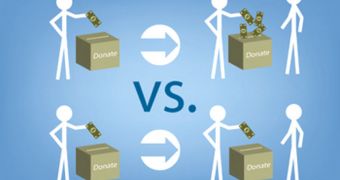Experts at the California Institute of Technology (Caltech) say that they were recently able to determine some of the most important characteristics of the inabilities autistic people experience in social interactions. Determining why this happens and how has thus far eluded scientists.
While the fact that social interactions are very difficult for autism patients has been known for quite some time, researchers were never able to fully characterize these lapses. Now, Caltech investigators take an important step in the correct direction.
The new study was especially focused in autistic individuals who are otherwise capable of functioning normally, but fail only when it comes to interacting with others. Individuals in this particular subgroup tend not to care about what others think of them.
Details of the new scientific study appear in this week's issue of the esteemed journal Proceedings of the National Academy of Sciences (PNAS). According to Caltech experts, the new findings are related to “theory of mind” abilities, which represent a rather vast concept.
Theory of mind refers to each person's innate ability to understand what others are thinking, believing or intending to do. This is a key trait of our species, since it enable us to save vast amounts of energy in our interactions with others.
However, when theory of mind does not function, a host of social problems appear. Understanding what other people think of us is one of the key abilities in theory of mind, but one that is largely absent in autistic individuals.
Taking this one step further, the absence of such understanding also leads to a different behavior, since our social reputation is known to have a great influence on our behavior, even if we are not conscious of it. It provides incentives for us to be nice and kind to others, the team says.
In a controlled experiment, the Caltech team asked people to donate money to UNICEF, but under different conditions. One group did so with a researcher in the room, whereas the other was asked to donate while alone in the same room.
“What we found in control participants – people without autism – basically replicated prior work. People donated more when they were being watched by another person, presumably to improve their social reputation,” Keise Izuma says.
“By contrast, participants with autism gave the same amount of money regardless of whether they were being watched or not. The effect was extremely clear,” adds the expert, who was the first author of the PNAS paper. He is also a postdoctoral scholar at Caltech.

 14 DAY TRIAL //
14 DAY TRIAL //